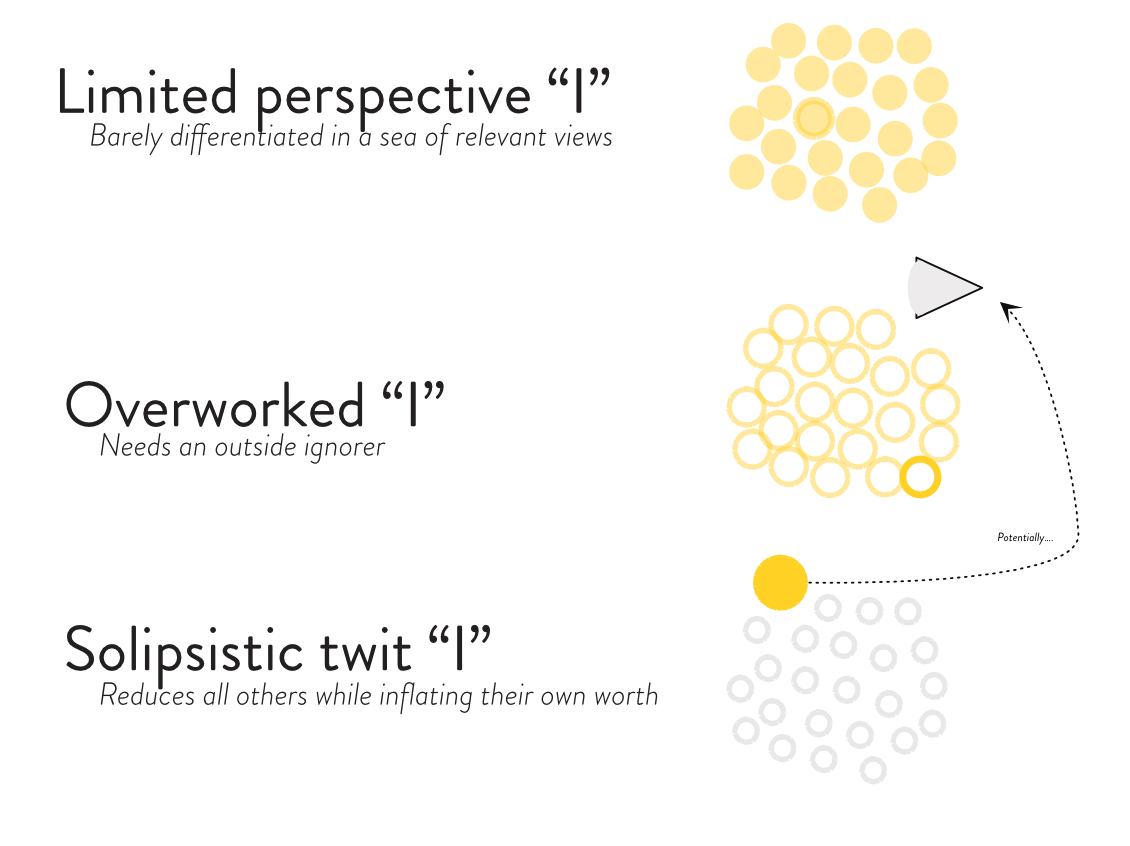Taxonomy and definition
The funky variability of “I”
“I” is a singular first-person pronoun; as such, it is taxonomy. The variability is definition and contextualized meaning. Meanings shift over time and can be the source of confusion as different people use taxonomy with different meanings.
So, taxonomy comes with potential issues:
- People using different words to mean the same thing
- People using the same word to mean different things
- The shifts to underlying meaning over time and through cultures
My most frequent use of “I” is to point out limited perspective
It is intended to ground, to say that, “this is not the sum of all reality, but a perspective of one that should be combined with other perspectives to create a complex and nuanced whole.”
Every word is an encapsulated node. Because it is ‘unpacked’ in the mind, the meaning can have different contextualization unless work is done to make sure everyone in a certain space is on the same page. In other words, the meaning I have for “I” might not be the same nuanced meaning each reader has.
Every person who ingests an idea brings their perception of the entirety of their reality to the ingestion.
- Some people use “I” to indicate a first-person one of many. Their voice is important, but not comprehensive. Others do not need to agree, and together a "we" can form.
- Some people use “I” with more force. It’s overworked. They are looking for agreement and validation, maybe feeling like they aren’t being heard. They both want to be a part of "we" and worry they won’t be admitted.
- People also exist who use “I” to drown out all dissenters, to make the singular first-person the only relevant perception in an otherwise dismissible mass of perceptions. There is no we.
- A very few people exist who use we to mean “I”, otherwise known as the royal “we”. It is mostly out of use. Also, it’s not how I’m using "we" in this book.
In other words, an individual’s historical experiences and environment impress every interaction. I can’t change if someone in another person’s world came from one of the other “I” models, and that person might still need their interpretive understanding to navigate their everyday life.
Over time they can learn to subset that person’s “I” to a variable modality, but right here, right now, never having met me, if the alternative-use “I” is the most prevalent in their life, my use of it can be triggering.
We can only know which “I” is usually being used by an individual through shared conversations.
context, encapRD, environment, garbage-in, meaning, ouruborus, top-down
